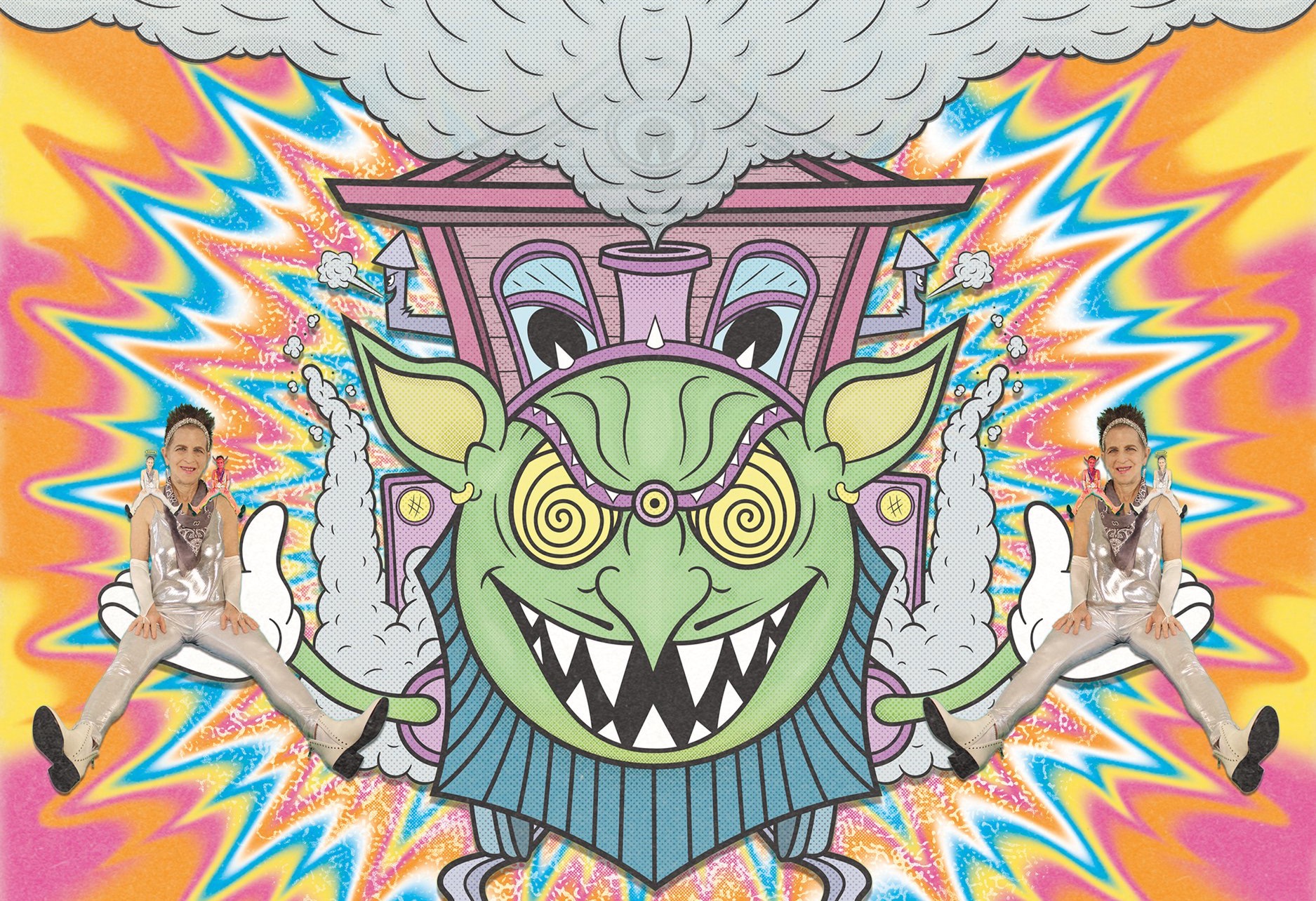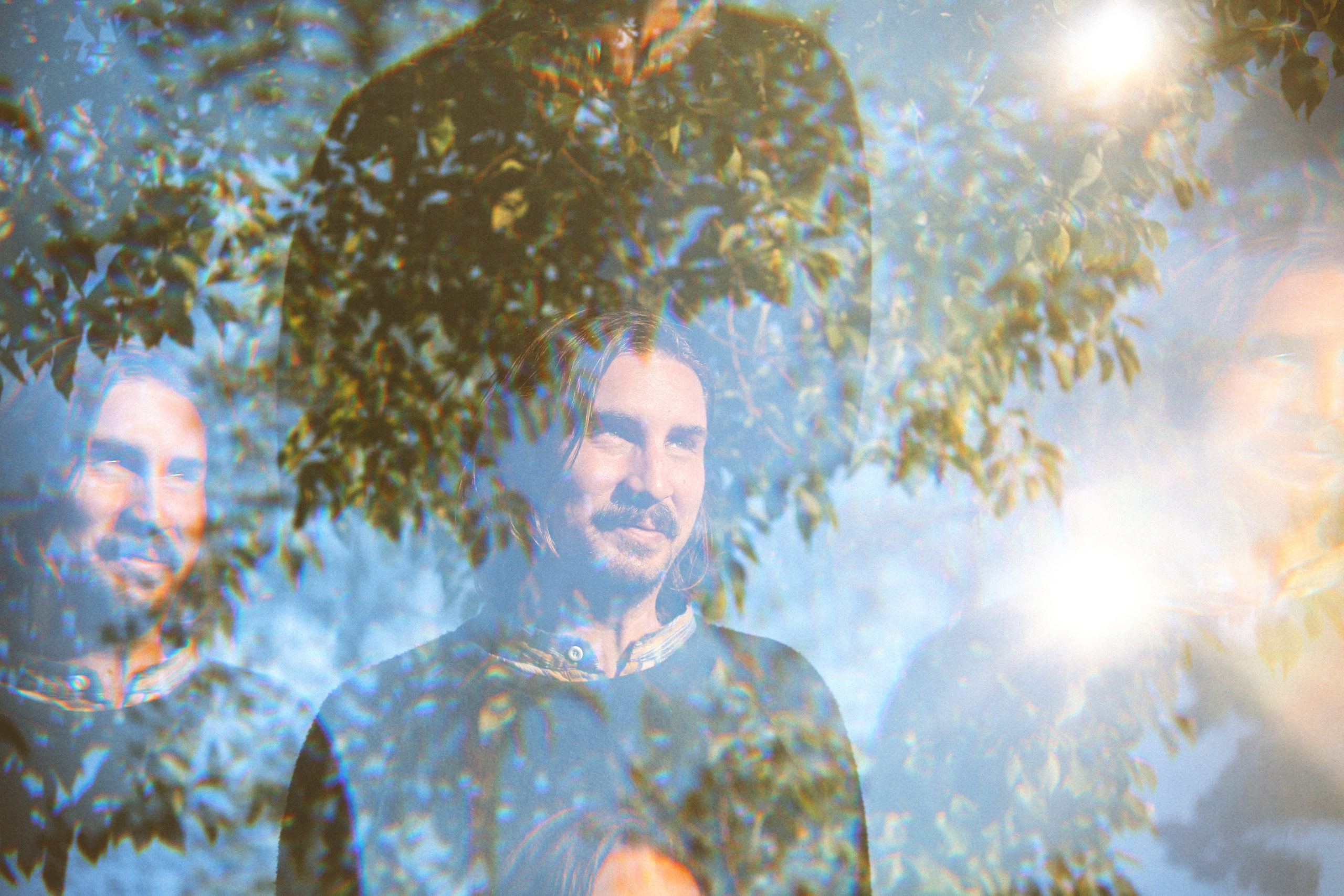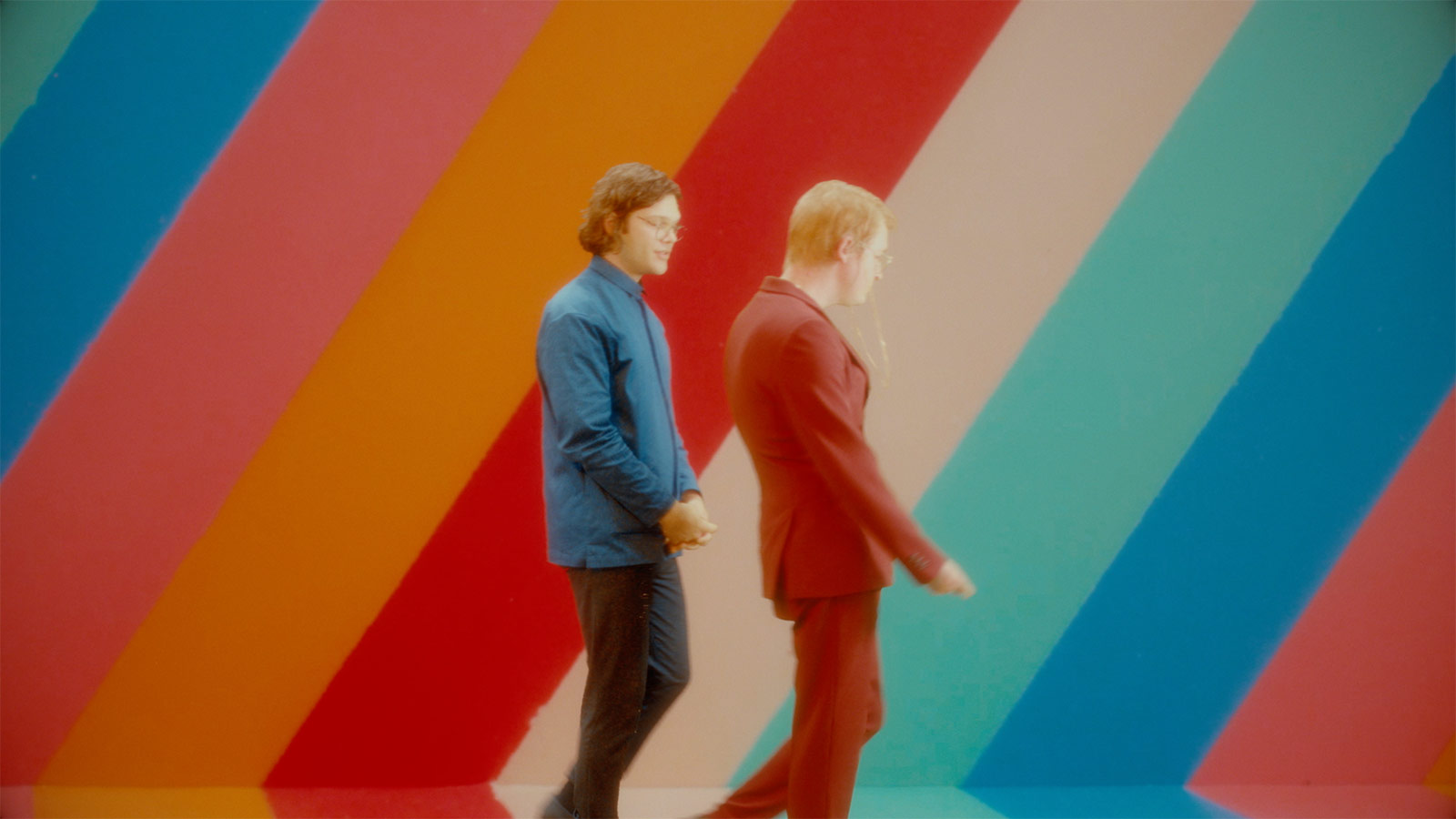By: Garrett Bethmann
I’m not smart or informed enough to understand String Theory, the theoretical framework in physics that propagates all particles in life are made up of strings, replicating in space and time, connecting and vibrating at different rhythms. I don’t really know how those vibrations interact with each other or how these explain anything about life — though that guy Zeke you know, with the pocket full of dirty crystals and river rock probably has some strong opinions on it.
I do understand the feeling of your life having a rhythm to it, the energy you feel in the day to day ebbs and flows. The river in the woods adds a rhythm, stopping and starting with traffic another, the wails of your 2 year-old adding more rhythm. You are inevitably impacted by these daily vibrations, assuming a wavelength that matches that of your surroundings, good or bad.
When those daily rhythms have stalled and rooted in some kind of benign pattern of practical “sameness,” I’ve found solace, joy and inspiration over the last couple months from DJ and producer Captain Planet, aka Charlie Wilder, and his latest album No Visa from Bastard Jazz Recordings. It’s a breathtaking, sonically stunning collage of iridescent rhythms and sounds, dancehall bangers evolved from cross pollinating musical cultures outside of America, from Turkish psych to deep Caribbean house to Zimbabwean pop. The album’s rhythm is as singular as its myriad of influences coming together as one, with Wilder’s vibrant imagination and crisp production bathing you in the fantastical warmth of life blooming on the dancefloor.
“I never sit down when I make music. My goal is to get to a point with a song where all I’m doing is buggin’ out dancing in the studio. That’s the essential place I come from, a dancer’s standpoint and the belief dancing is a fundamental element to being a human. We need to dance, it’s primal,” said Wilder.
Unique as the music is, it certainly cannot be separated from all the cultural tendrils intertwined within, which makes No Visa all the more intriguing for listeners. The album’s robust representation of different cultural genres, styles and aesthetics provide a multitude of different opportunities for fans to dive in and explore areas that grab them. As a world traveler himself, Wilder sees travel and exploring different cultures as a integral part of a personal education and his music certainly is able to function as a key to open doors and expose people to parts of the world they know nothing about. He does what he can to expose people to different music through his music blog Mixtaperiot.com, a never ending tap of world beats and remixes.
Wilder himself is an example of growing one’s consciousness through musical curiosity. As a teen, a mix tape of legendary Zimbabwean musician Thomas Mapfumo during a cross-country roadtrip was a cherished musical revelation for the young producer. His fascination grew into respect as Wilder delved deeper into his catalog at Lincoln Center’s Public Library, researching for his WYNU world music radio slot, learning more about Mapfumo and his revolutionary activism in Zimbabwe. His respect eventually led to determination as Wilder tracked Mapfumo down in Oregon, to pay his respects and make music with “The Lion of Zimbabwe,” of which a track featuring Mapfumo’s guitarist made it onto No Visa. It was a full circle moment that started in Zimbabwe and ended in Oregon and only underscores how music can fuel interest, expand awareness and bridge cultural gaps. In as much, it’s clear Wilder’s music as Captain Planet is meant to drive musical curiosity as much as it’s meant to drive a dancefloor.
There are plenty of things in the world we may have no idea about, like String Theory or revolutionary Zimbabwean musicians. We can get used to what’s easy and comfortable, jaded in our own rhythm, blissed by our ignorance. But there are infinite rhythms moving this world round and to tune yourself into these rhythms, especially the ones that feel different and strange, is to open yourself up to more curiosities and possibilities. When you get all those different rhythms moving together as one, well, that’s when you got a real dance party going.

Read below for a conversation with Charlie Wilder, aka Captain Planet. This interview has been edited for length and clarity.
What’s the story about how you got inspired to create music?
When I was a little kid I was all about dancing. I’m a very high energy guy and Michael Jackson was my hero growing up; my first concert was a Michael Jackson concert when I was two. I got really into dancing and tap and doing African dance, I was performing and doing everything I could do. When I hit middle school, that is when kids started legit teasing me. I’m from a very redneck part of New Hampshire, so people didn’t understand this little white boy who liked tap dancing and bugging out.
What pushed me to start making music was the teasing about the dancing. I was the only guy among girls and leotards and they thought I was gay. I said screw this and started playing drums and guitar and any instrument I could get my hands on. In high school I was listening to hip-hop, but when I was 16, I saw a friend show me how to scratch and juggle records for the first time. That really blew my mind wide open and I decided that’s what I wanted to focus on. I gotta give credit to the bullies who pushed me into lockers, if it wasn’t for them, I might still be tap dancing (laughing).
What did turntables open up for you as an instrument?
I was already listening to hip-hop as a kid, like MC Hammer and Arrested Development and Tribe Called Quest and De La Soul. But I never knew how it got made, my understanding was really abstract. When I saw how you could actually do it, it was like a door unlocking. I’m a visual artist and have always loved collages, so the whole idea of adding layers and bringing history into the present and chopping it up appealed to me a lot.
Captain Planet’s musical aesthetic is mostly rooted outside of American music. It seems to be from different musical strands and traditions way outside of our culture. What informs that sound?
One thing is that I have a huge musical curiosity and thankfully — to my mom — I got to travel a decent amount when I was younger. I grew up understanding that traveling was the best way to learn things and a crucial part of education is trying to explore the world. To actually be on backroads and being in people’s homes and having conversations, that kind of travel.
Another part of it had to do with it thinking this kind of music wasn’t getting a lot of representation. It was so new to me, I just wanted to share this stuff. I wanted to promote these sounds, just like people in hip-hop wanted to promote dope soul and funk samples.
Also, I had a radio show in college in New York City. I had been doing it at a really crappy time slot, with hip-hop, funk and soul, with a little bit of Brazilian and afrobeat. Then a primetime slot opened up on a radio station, 89.9 WNYU. They specifically wanted somebody to play international roots music, so I had some of that. But I had to really expand my education. Every week you have to come up with a new cut, so I was making trips to the Lincoln Center Library. It had a huge selection of world music and I was just digging deep, taking out stacks of CDs, burning them and photocopying the liner notes.
Once the show got a little established, all the record labels were sending us promos or someone would end up leaving a stack of Armenian records on our doorstep. I got a huge schooling and I was putting in 10,000 hours of making beats, mainly hip-hop. I started using more and more of these global samples and realized more and more they didn’t need anyone over top of them, they stood on their own.
What are some of the places you like to look to expand your musical library?
I have to give a big plug to Bastard Jazz and Wonderwheel Recordings. Both those labels are run by my good friends Nickodemus and Aaron DRM. Wonderwheel is specializing now in more of the electronic global fusion sounds, but Bastard Jazz has been supporting me from the start. They are forward-thinking, eclectic sound. Enchufada run by Bronco out of Portugal has a lot of really cool mixing of sounds. Down in South America, ZZK Records have been such a big spreader and proponent of deep cumbia and electronic ambient. Of course Analog Africa and Soundway Records and Bongo Joe Records have all been doing it for such a long time. They continue to dig up amazing gems.
It’s apparent you are very much interested in these global sounds, but the history and the people who play it. Zimbabwean musician Thomas Mapfumo has been an inspiration for you. Who is he to you, how did you connect and what’s so special about him?
I first heard him on a cassette tape from a friend I got before I drove across the country for the first time, with my dad and best friend. Immediately, that will bring back some particular memories. At that age I barely knew African music, and that put me in a trance again and again.
Later on, when I did this radio show, I found more stuff by him and started reading the liner notes and only then did I realize he was a major revolutionary in the Zimbabwean fight for independence and had been exiled. He opened up for Bob Marley and all these other things that elevated him in my mind.
Quite a few years ago, I just kinda thought I’d try and find him. In one way, pay my respects to this guy who has given me so much inspiration. He also wasn’t doing too much, at least not stuff that was doing anything in the mainstream. I found a phone number for him online and called him maybe 10 times, before one day he picked up. He just wanted me to come to his house, which was crazy to me, but very much African hospitality. It’s not how we are trained to treat strangers in America, it’s a whole new set of decorum to look out for strangers in a different way.
I bought a ticket and went for a week. I hung out with him and his family, made some music and got some progress with him. I went back a year or two later and did even more work with him and his band. It’s a great relationship. Sometimes you plant seeds in situations that don’t grow right away. The song on the album that features his guitar player had been with me for years and finally the time was right to finish it. I still have some other recordings with him, I need to finish them. He lives in Eugene, Oregon. He was exiled from Zimbabwe in the 90’s and just only went back recently to do some shows I think. There’s a little Zimbabwean community up there.
It seems you’ve been holding workshops and having an open dialogue on social media about racism and oppression. What are you trying to accomplish with your dialogue?
There’s a huge awakening in America and around the world. Having this global pandemic and so many people majorly affected in a major way, people are able to step back and look at their situation. Let’s reevaluate what’s going on here. We are all quick to complain about the state of things but we have so much going on that we don’t take the time to get behind some of the things we believe in. I fall into that category and I’m effectively unemployed. My wife and I are full time caretakers for our kids, no school and no nanny.
Being separated from people has led to me having longer, deeper conversations with my friends. I’ve been talking to people on Zoom for hours a lot, when maybe we’d talk for an hour once a year, and that’s true for a lot of my close friends. Black Lives Matter uprising and the shocking stuff going on has been forcing people to look deep and question things.
I have been affected deeply and it’s something I want to keep fanning the flames on. It’s always been a part of what I do and now I want it to be more front and center. I’ve always tried to promote the art of marginalized communities and black and brown skinned artists. I thought that was enough in this kind of resistance, but it is not and you have to be explicit about where you stand. You have to show front and center that’s what you are about. We really need a major reckoning and I’m all about it.


